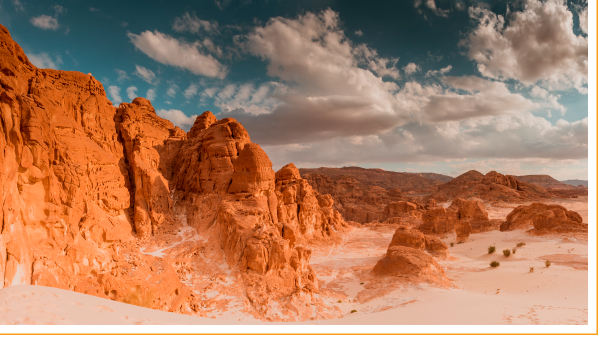Rabbi Danny Gottlieb | Congregation Beth Israel Judea, San Francisco, USA
 A core teaching of Jewish spiritual practice is our readiness to read the Torah in many different ways. We find meaning and significance across entire books; or we zoom in, such that an individual letter or even an accent mark fills our field of vision and discloses sacred truth. The weekly parashah is, of course, the most common “unit” for informing our reading. This week’s Torah portion, B’midbar, is the first in the Book of Numbers. The books of the Torah (and many classical Hebrew books) are named after their first important word; thus, B’midbar is the name of both the fourth book of the Torah and also of the weekly Torah portion. This year, for me, it is the name of the portion itself that speaks to me, because B’midbar means “in the wilderness,” “in the wild place,” “wandering in unchartered lands.”
A core teaching of Jewish spiritual practice is our readiness to read the Torah in many different ways. We find meaning and significance across entire books; or we zoom in, such that an individual letter or even an accent mark fills our field of vision and discloses sacred truth. The weekly parashah is, of course, the most common “unit” for informing our reading. This week’s Torah portion, B’midbar, is the first in the Book of Numbers. The books of the Torah (and many classical Hebrew books) are named after their first important word; thus, B’midbar is the name of both the fourth book of the Torah and also of the weekly Torah portion. This year, for me, it is the name of the portion itself that speaks to me, because B’midbar means “in the wilderness,” “in the wild place,” “wandering in unchartered lands.”
The wilderness is a foreboding and mysterious place, in which amazing things happen that might not happen anywhere else. It is a place where direction is not clear, where there are no clear-cut paths. The wilderness is a vast and empty place, where our People found themselves alone, with only the horizon in the distance, seemingly stretching out forever.
Encounters with God take place b’midbar, because in the wilderness the noise of the settled world cannot get in the way of our interaction with the Holy One of Blessing. In the wilderness we are more keenly aware of God’s power and our human frailty. It is not that we must be in a place of pain or despair or loss in order to commune with God; rather, it is in such times as these that we may be more open to the encounter. The Psalmist describes reaching out to God from a place of fear and uncertainty:
“From the narrow place I called out to you; You answered me from the wide place of Adonai” (Psalm 118:5)
The events of the past year, which have turned our world upside down—confining us to our homes, restricting our travel, denying us the closeness of contact with our loved ones, and redefining our work and home spaces—have many of us feeling as though we are living b’midbar, in the wilderness. Our lives are by no means being lived in ways that we might have anticipated or yearned for, and we find ourselves wandering in uncharted territory. Judaism teaches that, even in the hours of greatest distress, we are never alone:
“When you pass through water, I will be with you” (Isaiah 43:2)
The unknown, unexpected, unpredictable wilderness where we experience God’s Presence and the voice of the sacred can also be a positive place. After all, It was the place in which our People experienced their most profound and abiding transformation. It was in the wilderness that Torah was revealed to our ancestors. There they became a nation. There they settled into a routine of life.
And so it may be for us—a place of revelation and transformation to a new and emerging world, a return to our past and a reimagining of our future. May it be for us a place where we might meet God and hear God’s voice call to us once again.
This week is B’midbar. Welcome to the wilderness.
The views and opinions expressed in this article are those of the author(s) and do not necessarily reflect the official policy or position of the World Union for Progressive Judaism (WUPJ).
